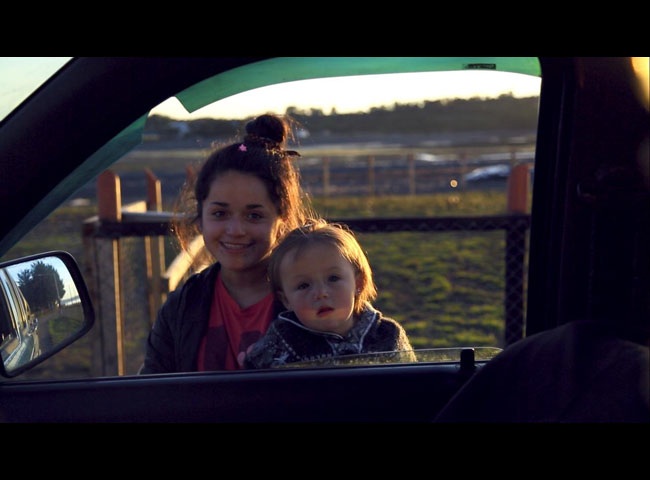El viento sabe que vuelvo a casa
-
Réalisé par José Luis Torres Leiva • Écrit par José Luis Torres Leiva
-
Chili • 2016 • 103 minutes • Couleur
- Réalisation :
José Luis Torres Leiva - Écriture :
José Luis Torres Leiva - Image :
Cristián Soto - Son :
Claudio Vargas - Montage :
José Luis Torres Leiva, Andrea Chignoli
- Production (structure) :
Globo Rojo Producciones - Ayant droit :
Globo Rojo Producciones
- N° ISAN :
non renseigné
Résumé
"Ignacio Aguëro (en compétition à Cinéma du Réel en 2013 avec El Otro Día) part à la rencontre des habitants de l’île chilienne de Meulín pour préparer un scénario sur la disparition d’un jeune couple, rumeur invérifiée du cru.José Luis Torres Leivase saisit de ce ferment de fiction puisé dans un fait-divers réel pour mettre ses pas dans les siens, assouplissant du même coup le documentaire ethnographique en distillant à travers les conversations éphémères tout un mode de vie local.
Autant les questions qu’Aguëro adresse à ses jeunes candidats au casting sont directes et filmées frontalement, autant Torres Leiva œuvre de manière oblique, en particulier en ce qui concerne les rapports entre "indigènes" et "non-indigènes" sur l’île. Les témoignages révèlent en effet un clivage socio-ethnique du territoire : d’un côté le centre, San Francisco, peuplé par des natifs, de l’autre El Transito, dont les habitants descendent des colons.
Mais de même qu’un pont les relie, les deux fils du film (casting et cheminement) s’ouvrent l’un à l’autre, les habitants croisés étant tout aussi porteurs de romanesque que les aspirants-acteurs. Cette porosité s’étend même aux objets : trois marmites de lessive puis trois lycéennes qui dansent font écho à trois bouilloires sur le feu...
Comme les amants évanescents, la fiction s’est fait la malle avec le documentaire, évaporée au profit du réel sans la moindre béquille théorique."
(C.G. - Cinéma du réel)
"Ignacio Aguëro (in competition at the 2013 Cinéma du réel with El Otro Día) sets out to meet the inhabitants of Chile’s Meulín Island to prepare a screenplay about the disappearance of a young couple – as an unverified local rumour claims. José Luis Torres Leiva takes this germ of fiction drawn from a real news item to rhyme his steps with theirs. He thus distends the ethnographic documentary by distilling a whole world of local life from ephemeral conversations.
While the questions Aguëro puts to the young people auditioning for a role are direct and filmed frontally, Torres Leiva works obliquely, particularly when it comes to the relationship between the “indigenous” and “non-indigenous” islanders. The testimonies reveal a socio-ethnic divide within the territory: on one side is the centre, San Francisco, populated by natives, on the other, El Transito, whose residents descend from the colons.
But just as a bridge links them together, the film’s two through-lines (casting and walking around) are permeable to one another, since the inhabitants encountered are as close to fiction as the would-be actors. This porosity even extends to objects: three basins for washing clothes then three dancing high-school students echo the three kettles on the fire...
Like vanishing lovers, fiction has eloped with the documentary, evaporated into reality without even the tiniest theoretical crutch."
(C.G. - Cinéma du réel)
Mot(s)-clé(s) thématique(s)
Sélections et distinctions
- 2019 • Festival Biarritz Amérique Latine • Biarritz (France) • Focus Patagonie
- 2019 • FIFIG - Festival International du Film Insulaire de Groix • Île de Groix (France) • Sélection "Les Îles chiliennes"
- 2016 • Cinéma du réel • Paris (France) • Compétition internationale
Comment avoir accès au film ?
-
Édition DVD
- Il n'existe pas d'édition DVD à notre connaissance
-
Accès VOD
- Il n'existe pas d'accès en VOD à notre connaissance
- Distribution
- Aide sur les moyens d'accéder à un film
